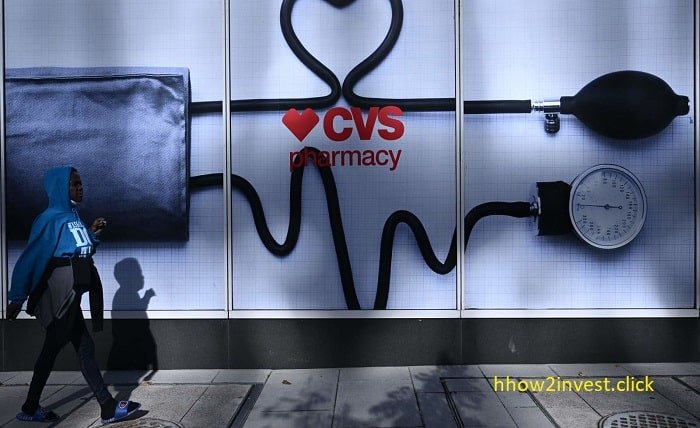
Introduction
CVS Health Corporation (NYSE: CVS) is a leading American healthcare company that has significantly impacted the pharmaceutical and retail sectors. With its expansive network of pharmacies and healthcare services, CVS is a vital player in the industry. Understanding the CVS stock price is crucial for investors looking to navigate the healthcare market. This blog post provides an in-depth analysis of the CVS stock price, examining historical trends, current performance, and future projections.
Historical Overview of CVS Stock Price
The historical performance of CVS stock price provides valuable insights into the company’s growth trajectory. CVS Health, originally known as Consumer Value Stores, went public in 1963. Over the decades, the CVS stock price has experienced various fluctuations due to market conditions, economic cycles, and company-specific events.
In the 1990s, the CVS stock price saw steady growth as the company expanded its footprint through acquisitions and mergers. Notable milestones include the merger with Caremark Rx in 2007, which significantly boosted the CVS stock price. This period of growth was characterized by strategic expansions, resulting in increased market share and revenue.
The 2008 financial crisis posed challenges for the CVS stock price, but the company’s resilient business model allowed it to recover quickly. The subsequent years saw the CVS stock price stabilize and grow as the company continued to innovate and expand its healthcare services.
Factors Influencing CVS Stock Price
Several factors influence the CVS stock price, including market trends, economic conditions, and company performance. Understanding these factors helps investors make informed decisions.
Market Trends: The overall performance of the stock market significantly impacts the CVS stock price. During bullish markets, the CVS stock price tends to rise as investor confidence grows. Conversely, bearish markets can lead to declines in the CVS stock price.
Economic Conditions: Macroeconomic factors such as inflation, interest rates, and employment rates also affect the CVS stock price. Economic downturns can reduce consumer spending, impacting CVS’s retail sales and, consequently, its stock price.
Company Performance: Internal factors like earnings reports, revenue growth, and strategic initiatives directly influence the CVS stock price. Positive earnings reports and successful business strategies can boost investor confidence, leading to an increase in the CVS stock price.
Recent Trends in CVS Stock Price
In recent years, the CVS stock price has shown resilience despite various challenges. The COVID-19 pandemic initially caused a dip in the CVS stock price, as the overall market faced unprecedented volatility. However, CVS’s role in providing essential healthcare services, including COVID-19 testing and vaccinations, led to a rebound in its stock price.
In 2021, the CVS stock price experienced a significant uptrend as the company reported strong earnings and expanded its healthcare services. The introduction of HealthHUBs, which offer a wide range of health services, positively impacted the CVS stock price by attracting more customers and increasing revenue.
Financial Performance and CVS Stock Price
The financial performance of CVS Health is a key determinant of its stock price. Analyzing the company’s financial statements, including revenue, net income, and earnings per share (EPS), provides insights into its stock price movements.
Revenue: CVS has consistently reported strong revenue growth, which supports a positive trend in the CVS stock price. The company’s diverse revenue streams from retail pharmacy, pharmacy benefit management (PBM), and healthcare services contribute to its robust financial performance.
Net Income: The company’s profitability, as indicated by net income, directly impacts the CVS stock price. Higher net income reflects efficient cost management and successful business strategies, which boost investor confidence.
Earnings Per Share (EPS): EPS is a crucial metric for investors. An increasing EPS trend often leads to a rise in the CVS stock price, as it indicates the company’s ability to generate higher profits for its shareholders.
Strategic Initiatives and CVS Stock Price
Strategic initiatives undertaken by CVS Health play a significant role in shaping the CVS stock price. These initiatives include mergers and acquisitions, expansion of healthcare services, and technological advancements.
Mergers and Acquisitions: CVS’s acquisition of Aetna in 2018 was a game-changer for the CVS stock price. This merger allowed CVS to integrate health insurance services, creating a more comprehensive healthcare offering. The synergy from this acquisition positively impacted the CVS stock price.
Expansion of Healthcare Services: The launch of HealthHUBs and MinuteClinics has expanded CVS’s healthcare services, attracting more customers and driving revenue growth. This expansion supports a positive trend in the CVS stock price.
Technological Advancements: Investing in technology to enhance customer experience and streamline operations also influences the CVS stock price. Initiatives like telehealth services and mobile app enhancements make CVS more competitive, positively impacting its stock price.
Competitive Landscape and CVS Stock Price
The competitive landscape in the healthcare and retail pharmacy sectors affects the CVS stock price. Analyzing CVS’s position relative to its competitors provides insights into its stock price dynamics.
Major Competitors: Walgreens Boots Alliance, Rite Aid, and Amazon are some of CVS’s major competitors. Competitive pressures from these companies can influence the CVS stock price. For instance, Amazon’s entry into the pharmacy sector with Amazon Pharmacy posed a potential threat to CVS, initially impacting its stock price.
Market Share: CVS’s ability to maintain or grow its market share is crucial for its stock price. Effective competitive strategies that allow CVS to capture a larger market share positively influence the CVS stock price.
Innovation and Differentiation: CVS’s efforts to differentiate itself through innovative healthcare solutions and superior customer service also impact its stock price. Being a market leader in innovation helps sustain a favorable CVS stock price.
Investor Sentiment and CVS Stock Price
Investor sentiment plays a crucial role in the CVS stock price movements. Positive news and market perceptions can drive the CVS stock price up, while negative sentiment can lead to declines.
Analyst Ratings: Analyst ratings and recommendations significantly influence investor sentiment. Upgrades or downgrades by analysts can cause fluctuations in the CVS stock price. Positive ratings often lead to increased buying activity, driving up the stock price.
News and Announcements: Company announcements, such as new product launches, partnerships, and financial results, impact investor sentiment and the CVS stock price. Positive announcements typically boost the stock price, while negative news can cause it to drop.
Market Trends: Broader market trends and investor sentiment towards the healthcare sector also influence the CVS stock price. During times of high interest in healthcare stocks, the CVS stock price tends to perform well.
Future Projections for CVS Stock Price
Predicting the future CVS stock price involves analyzing various factors, including market conditions, economic outlook, and company strategies. While it is challenging to forecast exact stock prices, trends and projections can provide guidance for investors.
Market Conditions: The overall market outlook influences the future CVS stock price. A bullish market environment is likely to support a positive trend in the CVS stock price.
Economic Outlook: Economic indicators such as GDP growth, inflation rates, and employment levels provide context for future CVS stock price movements. A strong economy typically supports higher stock prices.
Company Strategies: CVS’s strategic initiatives, such as expanding healthcare services, digital innovation, and cost management, will play a crucial role in its future stock price. Successful execution of these strategies is likely to drive the CVS stock price higher.
Investment Potential of CVS Stock Price
Investing in CVS stock requires a thorough understanding of its potential and risks. The CVS stock price presents opportunities for both short-term traders and long-term investors.
Short-Term Trading: For short-term traders, the CVS stock price offers opportunities to capitalize on market volatility and news-driven price movements. Understanding technical analysis and market trends is essential for successful trading.
Long-Term Investment: Long-term investors can benefit from CVS’s strong fundamentals and growth potential. The CVS stock price, backed by consistent revenue growth and strategic expansions, makes it a promising long-term investment.
Risk Factors: Investing in CVS stock also involves risks. Market volatility, economic downturns, and competitive pressures can impact the CVS stock price. Diversifying investments and staying informed about market conditions can help mitigate these risks.
Conclusion
The CVS stock price is influenced by a myriad of factors, including market trends, economic conditions, company performance, and strategic initiatives. Understanding these factors and staying informed about the latest developments is crucial for investors. CVS Health’s strong financial performance, strategic expansions, and innovative healthcare solutions position it well for future growth. While the CVS stock price may experience fluctuations, its long-term potential remains promising.
FAQs
- What influences the CVS stock price the most? The CVS stock price is influenced by market trends, economic conditions, company performance, strategic initiatives, and investor sentiment.
- How has the COVID-19 pandemic affected the CVS stock price? The COVID-19 pandemic initially caused a dip in the CVS stock price due to market volatility. However, CVS’s role in providing essential healthcare services led to a rebound in its stock price.
- What are the key financial metrics to watch for CVS stock price? Key financial metrics include revenue, net income, and earnings per share (EPS). These metrics provide insights into the company’s financial health and its stock price movements.
- Is CVS stock a good long-term investment? Yes, CVS stock has strong fundamentals and growth potential, making it a promising long-term investment. However, it is essential to consider market conditions and risk factors.
- What are the major competitors of CVS Health? Major competitors include Walgreens Boots Alliance, Rite Aid, and Amazon Pharmacy. Competitive pressures from these companies can influence the CVS stock price.




